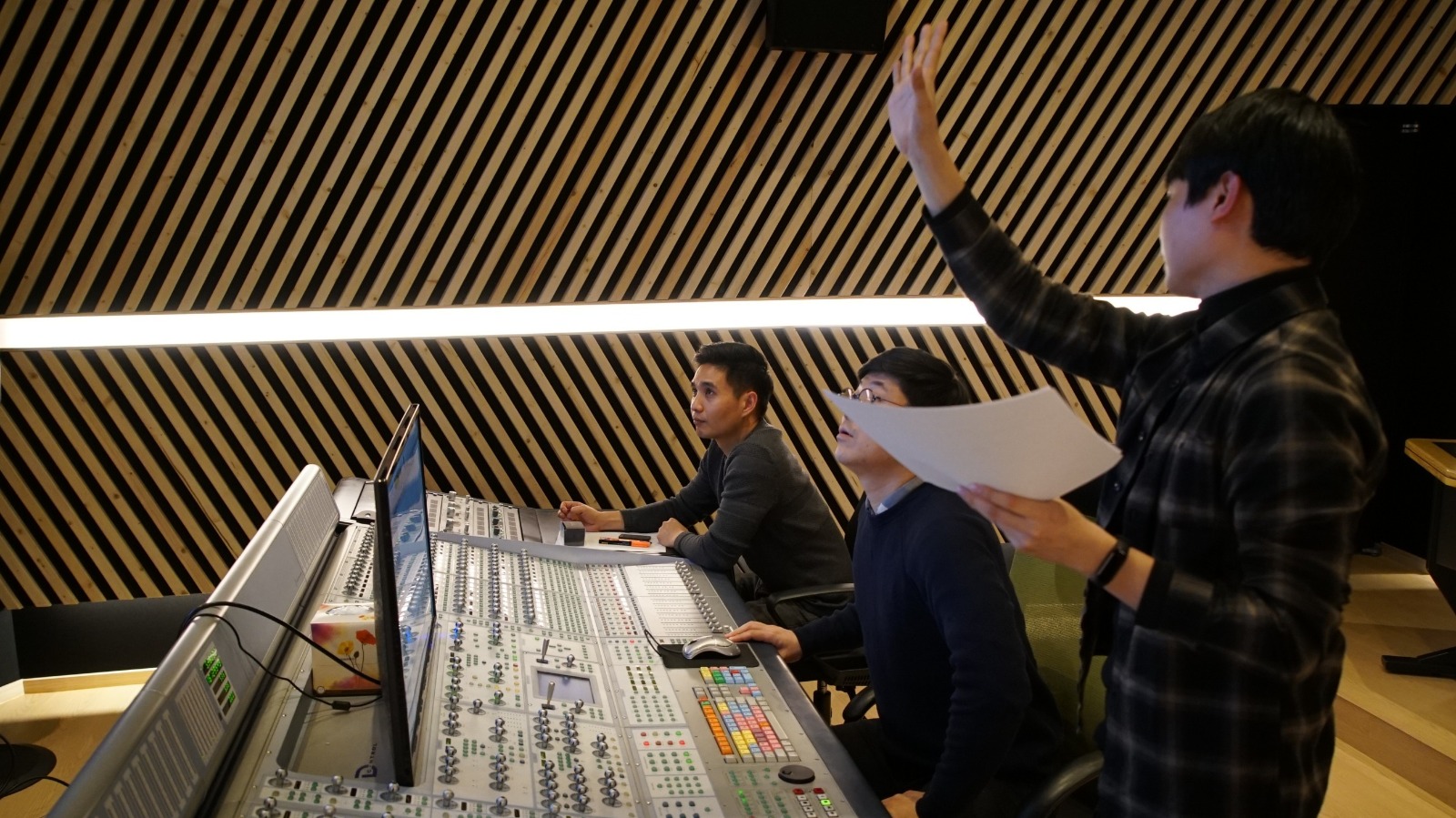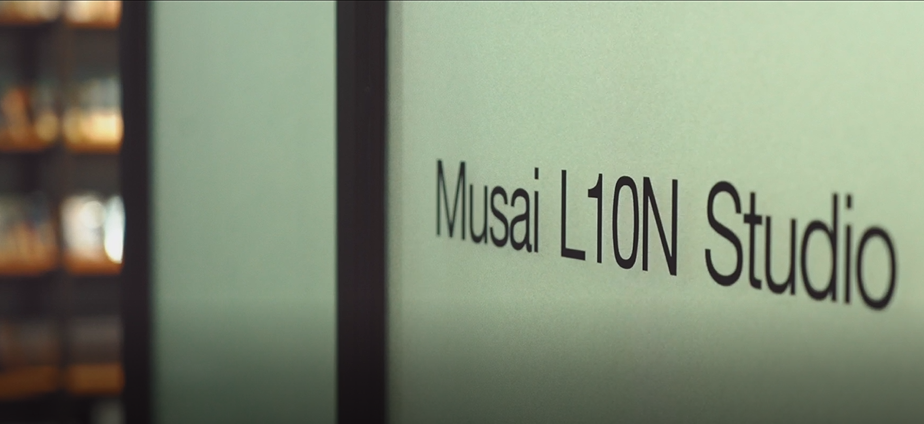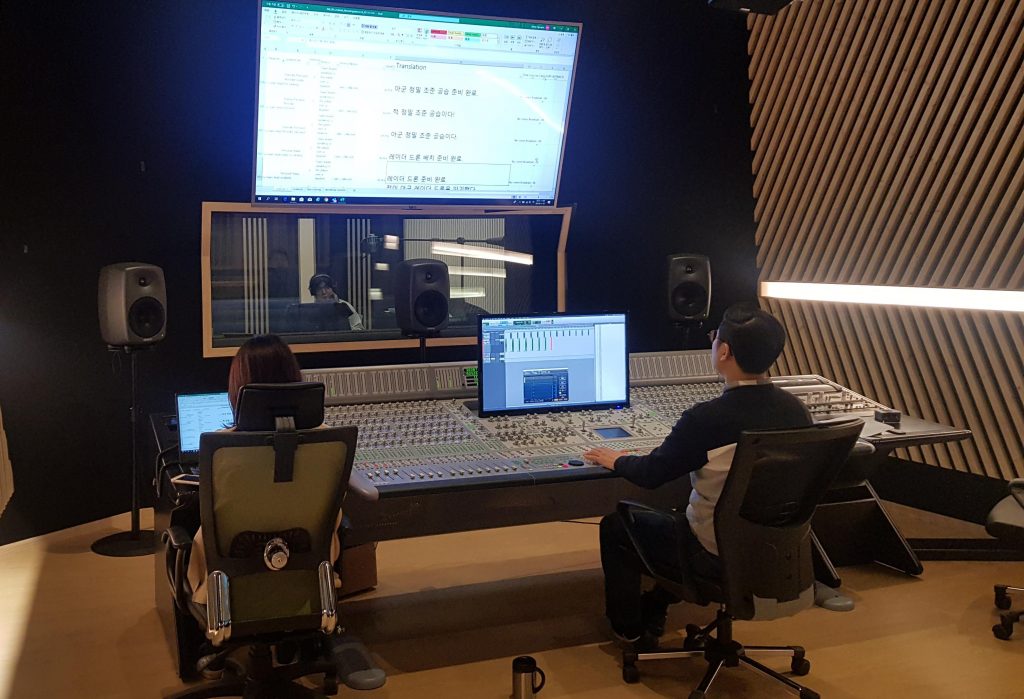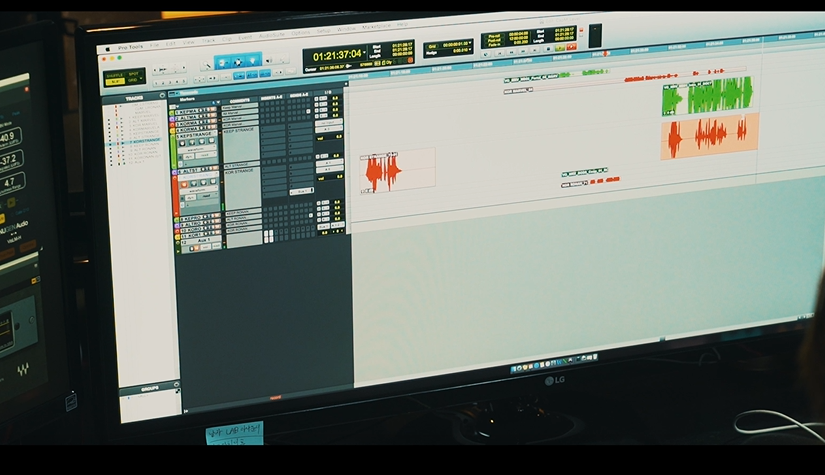[MUSAI INSIGHT] All about ‘Script Adaptation’ for Game Dubbing

2019-12-13
In the last post, we talked about Korean dubbing of ‘Planet Zoo’ and covered the explosive reaction of users and its factors. (See the post here) What we concluded was that ‘Planet Zoo’ was a smart project to take an advantage of ‘Musai Integrated Service’, which means both script translation and dubbing have been done in the integrated studio of Musai.
The top advantage of ‘Musai Integrated Service’ is the efficiency of ‘Script Adaptation’. We would like to say it is a key for the successful game dubbing and it’s not overestimated. Then, what is ‘Script Adaptation’ and why is it so important?
What is ‘Script Adaptation’?
Each localization agency has their own area of specialism by the contents such as software, books and videos, etc. Since games are a part of software as a specialized field, they are handled by localization agencies specialized in games.
In general, the standard process of localization is classified with TEP, which is translation, edit and proofreading. TEP suffices for general contents such as ‘help’ or ‘manual’. But for the contents with specificity such as legal, technical, medical topics, they should be supervised by subject matter experts (SME) after TEP.
The script for recording is required the additional process as well. Since the script translated with TEP process is not enough for recording session right away, ‘Script Adaptation’ should be happened. ‘Script Adaptation’ means all the process to optimize the script for recording session.

What processes are included in Script Adaptation?
A. Check Length
The basic and most important part. There are several issues to remember about controlling length for recording session;
- Time Constraint: Recorded file must match the length of reference audio file
- Lip Sync: Recorded audio must match the lip movement as closely as possible to the provided reference video.
- Sound Sync: Recorded sounds must match the timing to makesure gaps and silences of recorded sounds match the reference audio.
The issues to be dealt with are different by projects as were stated above. If the lines of the translated script are too short or long, or the script is translated without consideration of the original sounds and videos, ‘Script Adaptation’ is an inevitable process for the next step.
B. Conversational style
Game localization is a specific field as we mentioned earlier, so developers find localization agencies specialized in games and entrust their titles. However, despite of their experience about games, their linguists both freelance and inhouse are mostly skilled in written style, not in spoken style for dubbing.
Furthermore, the script for recording is mixed up with other strings like sentences for in-game or UI time to time, so that it’s very hard to divide in the translation process. This issue is unavoidable because translation normally get started before the game is completely developed. As the development schedule goes on, the localization process is followed.
For those reasons, audio studios are received the translated script with issues about not only length, but also written style. Sometimes even the lines with totally different meanings are found while recording.
That’s why recording studios usually have to revise the script into conversational style before starting recording session.
C. Relationship between characters
There are honorifics in Korean. Sometimes the relationship between characters is not considered in the stage of translation due to the lack of information about each sentence. Of course, the script should be revised based on the relationships and applied proper honorifics.
D. Consider acting style of assigned voice actor
For some important characters, the script is possibly changed to reflect the actor’s acting style. A few voice actors for main characters usually review the script in advance and make some changes as their acting style.
E. As-Rec Script
Even though ‘Script Adaptation’ has been done thoroughly, several issues pop up while recording. If the line sounds awkward for recording or some incorrections were discovered, linguists take part in the recording session and modify the script directly. That’s how ‘as-rec script’ is completed.

Why do developers have to choose different agencies for script translation and voice-over?
A. The absence of double-majored agencies
To put it simply, there are only few agencies capable of both translation and voice-over. They are totally different majors as you know.
B. Internal process of clients
Some developers have teams for each process separately. For example, a localization division or vendor manager is in charge to recruit an agency for script translation, and a multimedia division or sound team if they have, make a decision to select a recording studio. Bigger companies tend to have a system like this. As for a vendor, the work process will be different depend on the cooperation between the two departments of the client. The process to select vendors will be different depends on clients’ specific condition as well
C. The timeline of translation and recording
In the localization process, translation get started first. To minimize the case of re-recording, the starting point of recording process is placed at the end of the translation process.
Therefore, the developers have the process of recruiting agencies following this timeline. There are cases to open the bidding and select agencies for both translation and voice-over in the beginning of the localization process, but more cases of choosing a translation company first.
In some cases, there was no plan for voice-over in the beginning of the development, but it may have changed due to the marketing trend.
What is the merit of ‘Script Adaptation’?
A. Reduction of the cost
Possible to reduce the cost overall as well as to prevent for unexpected additional cost. In general, the quotation for recording includes the cost for voice actors, studio rental, artistic directing and engineering, etc. If ‘Script Adaptation’ is excluded to save the cost, extra fee (more than imagine) can be added due to delay of the recording session – the cost of recording session can be 10 to 30 times higher in comparison to the cost of ‘Script Adaptation’. Don’t forget the gap between the two session when you make a decision.
B. Improvement of the quality
Let’s suppose that there was no ‘Script Adaptation’ stage. The script was adjusted for length and applied in conversational style spontaneously during the recording session. Not only the problem with the delay of the recording schedule, but is it possible to have the best quality?
C. Efficiency of the post-production process
If the issue of length and sync is considered from the beginning, the post-production goes smoothly as well. The script modified during the recording process without ‘Script Adaptation’ stage will take more time and efforts for post-production. Furthermore, it’s hard to get rid of the awkwardness perfectly no matter how skillful the engineer is. The players are keen and much more sensitive than we expect.

Who should be in charge of ‘Script Adaptation’?
The quotation knows the answer and it’s up to the decision of clients. The most important thing to remember for clients is that ‘Script Adaptation’ is not an optional process. It should be assigned to either translation agency or recording studio for certain. If not, nobody has a responsibility to check the adaptation, so the serious issue of quality and cost will be followed.
Back to the question, there are two cases. If the script is clearly separated and the related information is enough from the beginning, translation agencies or localization managers of the developer should take the ‘Script Adaptation’ process. It’s the best scenario that the script is translated with the consideration for recording process from the beginning. If so, we can expect the best quality of the script with less effort for the adaptation.
Otherwise, in the case that the script is mix up with other strings and the context information is insufficient, ‘Script Adaptation’ should be handled in recording studios.
Lots of AAA titles are usually planned to distribute to all target markets concurrently (as known as Sim-ship), which means that all production schedule is extremely tight. That’s why it could be better option to do ‘Script Adaptation’ by recording studio in terms of both schedule and quality.
In Japan, the circumstance has been built up that the script should have been completed before a week of the actual recording day. As a result, voice actors have a chance to read the script in advance. As a studio, eager to maximize the quality of projects, that’s what we are looking for as a culture of recording field.
For the first step to make it happen, ‘Script Adaptation’ should be known as a mandatory process in the localization. Furthermore, the schedule and person in charge should be arranged and shared to each vendor. It can’t be any better if this works.
More news of Musai? Please click Subscribe and share the story.
Boost Your Play! Musai Studio







